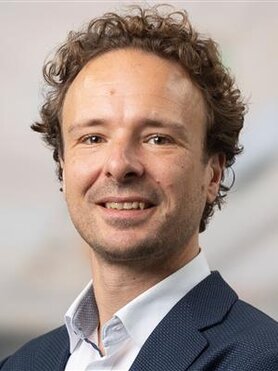

Ir. S. (Sander) van Cranenburgh
Ir. S. (Sander) van Cranenburgh
Profile
Biography
I’m an Associate Professor of Choice modelling. My research aim is to develop new models for enhancing our understanding of human choice behaviour. Understanding choice behaviour better and being able to accurately predict it is essential to the efficient functioning of society. For instance, it enables making appropriate provisions to accommodate travel demand when a new railway line is constructed.
My recent works have focused on developing new choice models that can effectively handle unstructured data, such as images and text. After all, images and text are indispensable to many real-world decision situations but are ignored in traditional choice models. In today's digital age, it is hard to imagine searching for a house (on a real estate website), a hotel room, or a tourism destination without access to images.
I also lead TUD’s CityAI Lab. At this AI lab, we aim to unravel how the urban environment and human behaviour dance a tango. In our work, we capitalise on advances in machine learning and on the wealth of data available now at a city level. For instance, we use AI to study the evolution of residential segregation, uncover people's perceptions of the urban space and develop smart noise sensors to detect sources of urban noise pollution. Ultimately, we hope to contribute to the development of more attractive and liveable cities.
In my Postdoc years (2013-2014), I made a series of contributions to random regret minimisation (RRM) based on discrete choice models. RRM models are a behaviourally inspired counterpart of the classical Random Utility Maximisation model. I have developed a new family of RRM models, a new data collection methodology, and the world’s first RRM-based national transport model. See my website, www.advancedRRMmodels.com, for these developments in Random Regret Minimization (RRM) modelling, experimental design software for RRM models (Ngene & MATLAB), and estimation codes for RRM models for Biogeme, R (Apollo), MATLAB, and LatentGold Choice.
Expertise
Publications
-
2025
Computer vision-enriched discrete choice models, with an application to residential location choice
Sander van Cranenburgh / Francisco Garrido-Valenzuela
-
2024
Beyond behavioural change
Investigating alternative explanations for shorter time headways when human drivers follow automated vehicles
Yiru Jiao / Guopeng Li / Simeon C. Calvert / Sander van Cranenburgh / Hans van Lint -
2024
Correction to
Using XGBoost and SHAP to explain citizens’ differences in policy support for reimposing COVID-19 measures in the Netherlands (Quality & Quantity, (2024), 10.1007/s11135-024-01938-2)
Jose Ignacio Hernandez / Sander van Cranenburgh / Marijn de Bruin / Marijn Stok / Niek Mouter -
2024
Establishing causality using observational panel data
Models and applications
Maarten Kroesen / Sander van Cranenburgh -
2024
Evolution of residential segregation patterns in the Netherlands between 2015 and 2020
Lucas Spierenburg / Sander van Cranenburgh / Oded Cats
-
Media
-
2016-11-19
De homo economicus heeft twee gezichten
Appeared in: Trouw
Ancillary activities
-
2024-07-12 - 2025-07-25